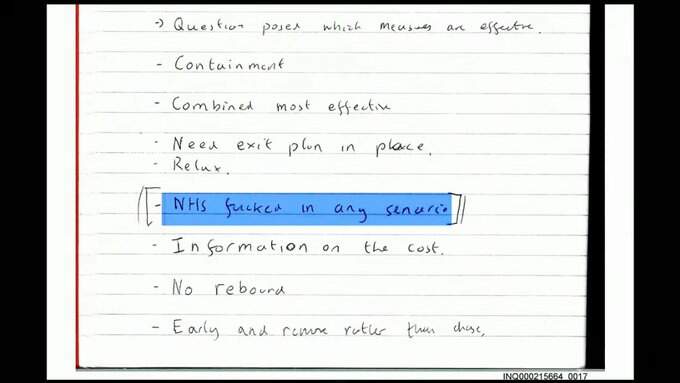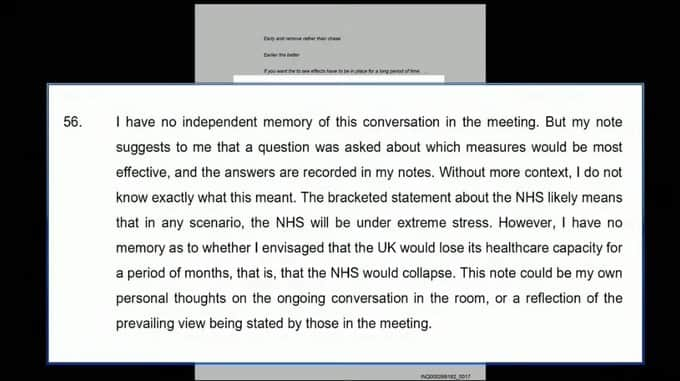This in ‘The Knowledge’via the Telegraph.
Lockdown: a wrecking ball that never needed to swing
The Covid Inquiry is more interested in finding swear words in people’s WhatsApp messages than uncovering the truth about lockdowns, says Fraser Nelson in The Daily Telegraph. “But it’s starting to creep out anyway.” The written evidence submitted by Dominic Cummings, for example, revealed that the UK scientists advising the Sage committee were, at first, “unanimously against” lockdowns. Even doomsters like Prof Neil Ferguson fretted that they could be “worse than the disease”. But with Britain and Sweden the only major holdouts against Wuhan-style shutdowns, and “disaster-graphs” circulating online, public pressure mounted. Ferguson dutifully published his “doom models”, and Britain’s scientists “fell in behind”.
It was a different story in Sweden, where former state epidemiologist Johan Giesecke was “reading Ferguson’s models in disbelief”. He recalled Ferguson saying 200 million might die from bird flu, when just 455 did. Modellers had been “calamitously wrong” before. “Should society really be closed now on their say so?” Giesecke and his protégé Anders Tegnell pulled Ferguson’s models apart, finding “flaw after flaw”, and successfully argued to keep the country open. Yet no one was pulling apart the models in Britain. One internal report showed that 600,000 hospital beds would be needed; the actual number peaked at 34,000. The PM was told 90,000 ventilators were required; demand for them peaked at 3,700. And the wasted money is nothing compared to the millions of children needlessly denied education, and the economic and mental health impact of lockdowns. What we now know is that the virus was already in reverse before lockdown started, due to people behaving sensibly of their own accord. It was a “social and economic wrecking ball that never needed to swing


